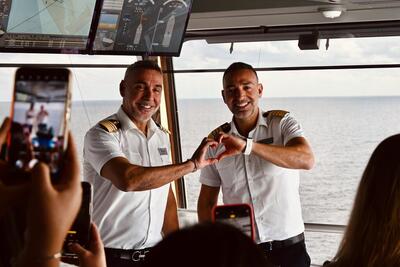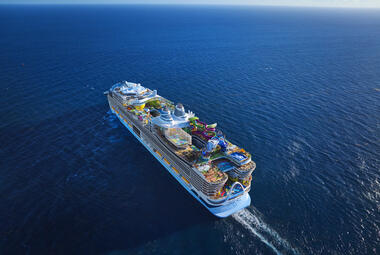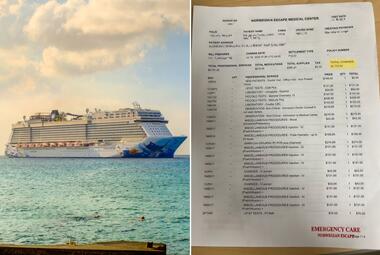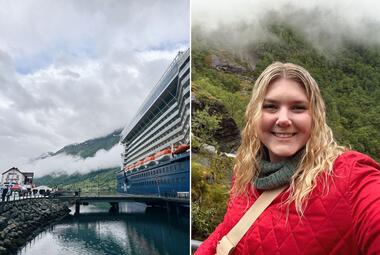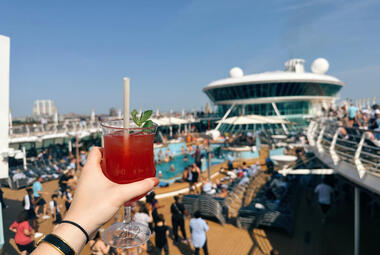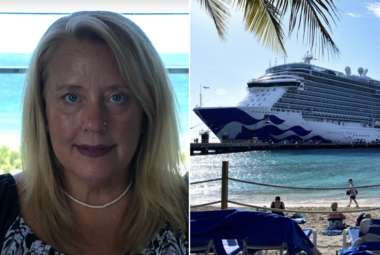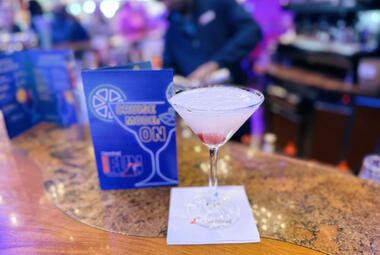If you could ask a cruise ship Officer anything, where would you begin?
yesman_85 posed the question under the r/IAmA subreddit, giving nautical enthusiasts a chance to ask their pressing questions.
"For many years I have been working as [a] watch keeping officer onboard cruise ships. Have seen quite some ships but stuck around the smaller yachts of Seabourn Cruise Line. Working there now as chief officer, soon (hopefully) [promoted] to staff captain. Same ship as the ship on Speed 2!"
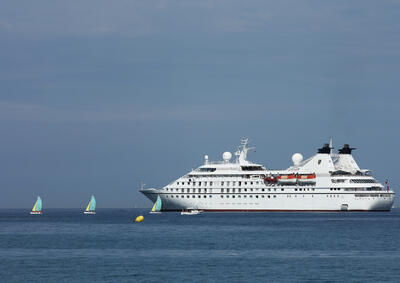
If you're a bit behind on popular culture, rather than force you to head to Google, let me enlighten you with some context: Speed 2 is an action movie that premiered in 1997 featuring Sandra Bullock and Jason Patric.
Production took place onboard the Seabourn Legend. Since then, however, the ship was transferred to Windstar Cruises and now sails as the Star Legend.
With that out of the way, let's dive into some questions posed to a cruise ship officer!
"What are [the] conditions for workers on a cruise ship (from the lowest to the highest 'rank')?"
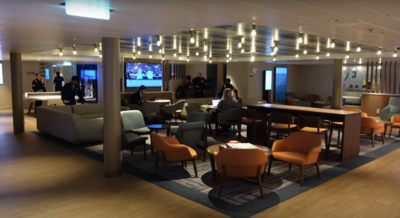
A now-deleted user asked about the crew member's conditions, as well as the average contract length, turnover rate, and pay.
"This greatly depends on the company but [of course] the higher the rank the better life you get," yesman_85 begins.
"For staff (= engineers, officers, hotel manager, basically most non service, management staff) have their own cabins, separate bars, much higher pay and benefits than the other crew."
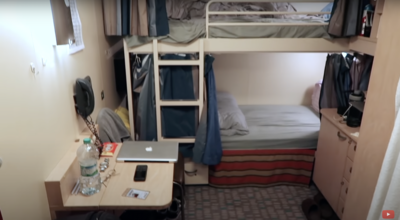
In comparison, they claim that the majority of other crew members share cabins with at least one other employee, sometimes up to four per room.
yesman_85 moves on to talk about the pay, which is "generally" good, "especially because you get everything for free: housing, food, flights etc. If you have a cheap place at home you can save quite some money."
Regarding the workload, most work around 10 to 12 hours per day, with those working in the onboard shops, spa, and casino having one day off per week.
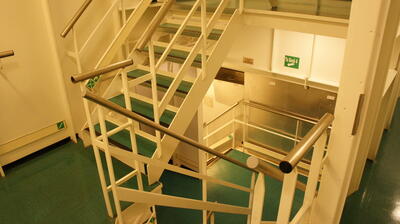
"Generally the contracts are 4 months, but they can range up to 9 months for spa staff...and 12 months for the Filipino staff...because they don't mind working for longer period and are happy to stay long onboard. Western people generally don't like to stay longer [than] 6 months," he says.
While he was working with Seabourn, he was working 3 months on and 3 months off. However, he was only getting paid for the time he was onboard.
Read more: Take a look inside two cruise ship captains' living quarters
"[Does] security have weapons?"
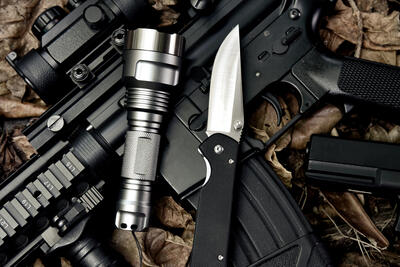
"I was quite young at the time but a few years ago I was on the independence and we docked in athens. I'm sure i remember the security having side arms," asks DaMaDoR.
To yesman_85's knowledge, no cruise ships have weapons onboard; however, he doesn't discredit the idea of having a gun stashed away in the event of a true security threat.
"Do pirates pose a threat to cruise liners? Have you ever been pirated?"
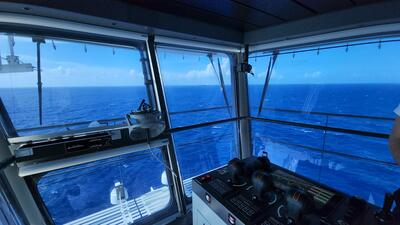
"Yes it's a big problem," says yesman_85. Though weapons aren't used to deter pirates, LRAD, or long-range acoustic devices, are used to scare them away.
He then shared a link to a YouTube video of the Seabourn Spirit under attack in 2005. "Stay inside, stay inside, stay inside... This is a real alarm. Please stay inside," can be heard over the PA system.
Are pirates truly a treat to cruise ships? Sure, but I wouldn't worry about an attack leading up to your cruise.
Am I eligible for reimbursement?
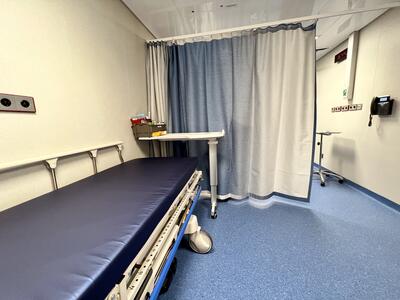
"I was quarantined to my cabin the last day and night of the cruise because I had been sick to my stomach. The doctor told me he believed it was norovirus. I was escorted off the ship separately from the other passengers and taken through customs alone," writes a now-deleted user.
"I felt fine and I was only sick once. My question: My friends are telling me to lodge a complaint with the cruise line (Princess) for some sort of reimbursement or credit for the lost portion of my cruise. Is this something you would suggest doing? Thanks in advance!"
yesman_85 explains how they've seen some bad outbreaks on cruise ships with around 80% of the passengers ill. However, "if the doctor conines you in your cabin you should get a few 100$ per day of compensation... Generally the longer the cruise and the future it is away from the states the [higher the chance] of an outbreak. It speeds VERY fast."

This is a good time to remind you to purchase travel insurance for your upcoming cruise, as well as maintain a good hygiene regime while onboard!
"Is the steering wheel really necessary these days?"
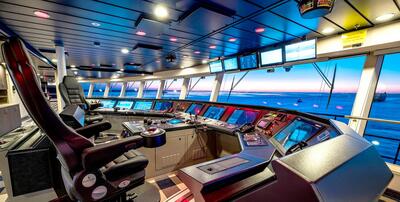
In response to TahoeTweezer, yesman_85 says ships often sail through narrow channels, with towing sometimes required. "You can't go too fast because you get the effect of squatting: the ship sinking a couple of [centimeters] because of the speed."
What kind of emergencies and situations do you practice for on a regular basis?"
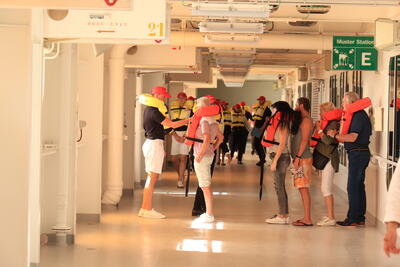
"...and do those [drills] happen when passengers [are] on board without their knowledge or do the ships go out empty for training like that?" asks one3eb.
"When passengers are boarded and just before departure we have the mandatory lifeboat drill, sort of like the drill you get on airplanes. Passengers who don't show up risk...not traveling nowadays after the Concordia accident," yesman_85 writes.
Additionally, there's a mandatory weekly fire drill involving the entire fire and rescue team. It takes about 30 minutes and "...always ends up in abandon ship and the alarm whistles and bells will be sounded, all crew (except for security) has to participate in this drill."

There are other exercises they perform to ensure they're prepared for an emergency, like lowering the lifeboats, entering and turning rafts, fire fighting techniques, oil-spill drills, man overboard, and more. According to yesman_85, all crew rotates through the various trainings, so they complete all drills at least once during their contact.
"We train a lot because out there you can be quite alone. The purpose of the crew [drills are to] basically pcreate] muscle memory so they know exactly what to do without thinking," he says.
"Crew that just comes on board, first time or not, have to do mandatory safety instructions which range from safety/lifesaving to first aid and environmental care. For brand new crew this can take up to a week before they...start working, on some ships this process is quite rigorous."
Read more: What is a cruise ship muster drill?
"Can you take us through an average day at sea?"
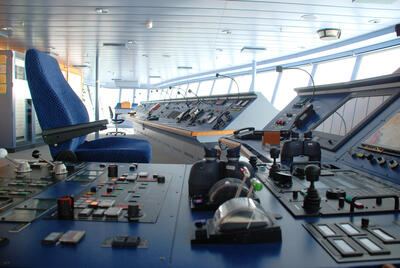
In response to ThegreatPee, yesman_85 explains the Chief Officer also serves as a Watchkeeping Officer, along with the First and Second Officers.
"We all do 2x4 hours of watch. 2nd officer is junior so he does the 8:00-12:00 and 20:00-24:00 because then most people are still up to keep an eye on things. First officer does the 12:00-16:00 and 0:00-4:00."
To yesman_85, the latter is the best shift, as it's quiet. The downside is that there's not much shore time.
Read more: Life working on a cruise ship: Day in a life of a cruise ship crew member
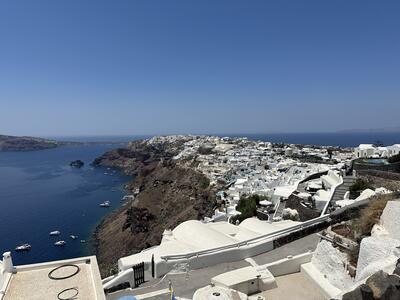
"I do the 04:00-08:00 and 16:00-20:00. I get up at 03:30 to take over at 04:00. This watch is usually the busiest because you have to prepare for the arrival, wake up the captain 30 mins before arrival, call the pilots, test and prepare the bridge for [maneuvering] etc.," he continues.
"After arrival, usually around 7:00-8:00 I get relieved and just have my breakfast, wake up some more and start doing some day work. Chief officer is responsible for live saving equipment (lifeboats, lifejackets, ladders etc) which means using the maintenance system to check certain things and put others to work."
yesman_85 has some time off before lunch, which he uses to go ashore, nap, or rest for his next shift at 16:00 (or 4:00pm). Since this is typically when ships depart from port, it's a busy watch.
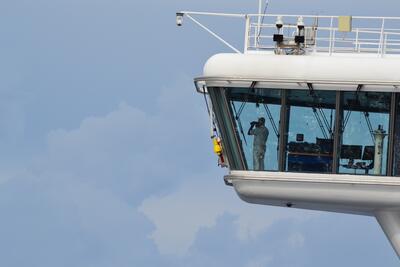
"At 18:00 I get relieved by the 1st, 2nd or anyone who feels up to it for dinner and get relieved by 20:00 again. Go straight to bed to be woken again at 3:30 for the next round...When we have a proper sea day without departures or arrivals it can become quite boring if sailing in calm waters."
Read more: What It's Like to Work As a Performer on a Cruise Ship
"Have you witnessed anything silly going on the ship that you had to put a stop to?"
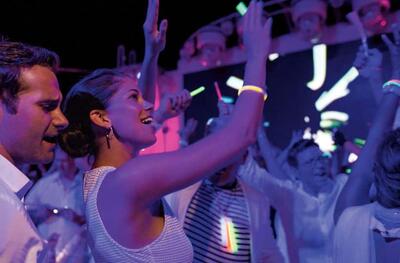
Security guards are available to handle most issues. Plus, most passengers on Seabourn cruises tend to be older, so they didn't give the crew too much trouble.
However, yesman_85 says he's seen crew members climbing on outside railings for "private time" after they've closed.
thatburrowedlurker continued to ask two more questions. First, "What are some of the best cruises to go on for vacation in your opinion?"

yesman_85's a fan of European cruises because of the ports and weather. Another good option is Asia because smaller ships can dock in city centers. Knowing that your luxury cruise ship is close by means that you don't need to sleep in "tiny beds" or deal with "smelly cabs" to sightsee.
Finally, he was asked for his advance for a first-time cruiser.
"Just enjoy everything you can! See the sights, don't hang around in your cabin, it's a lot of people on a [relatively] small surface so social contact is a big part of cruising," he says.
How automated is the Bridge?
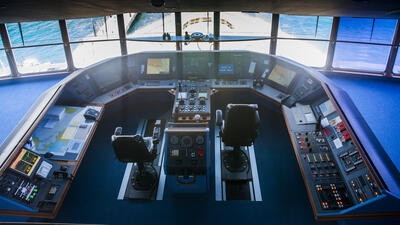
"I drive a ship from 1989 and it's very automated. The SAM Electronics integrated bridge takes care of most of the navigation. Paper charts [were] removed from the bridge last year and we are now [fully] electronic," he writes in response to ThegreatPee.
"Updates come in weekly through the internet so we are always up to date. The navigation officer is responsible for planning the route [and] programming it in the autopilot."
Then, once the captain has pushed away from the pier, autopilot kicks in and helps control the course and the ship's speed. However, he explains that cruise ships are not as automated as airplanes. They dim the lights by hand and change the master clock when the time changes.
"Have you ever been on a ship where someone went overboard, and have protocols changed for how these situations are dealt with when they occur?”
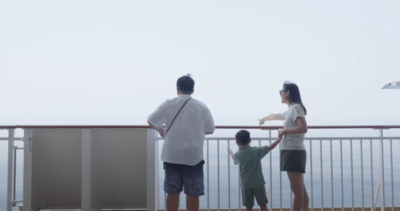
With man-overboard incidents, it's hard to prove whether it was a crime or an accident. While yesman_85 had never witnessed any (at the time of writing), the crew prepares in case someone does go overboard.
"The biggest problem," he says, "is usually that nobody notices and ships are too slow to just turn around after 4 hours because the person would generally not survive."
Even in warmer climates, there's always the risk of exhaustion and hypothermia. However, nearby ships are required to help aid in search and rescue efforts.
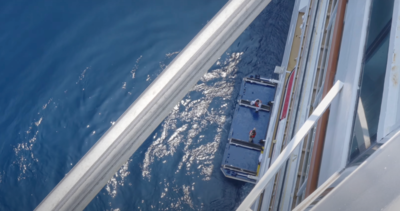
"People who go missing [within] a few 100 miles of land usually have no chance of surviving," yesman_85 writes.
Read more: MSC crew member goes overboard on cruise ship
"How is the food on the boat?"
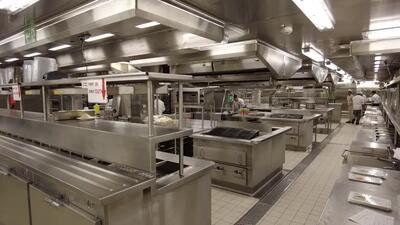
With passengers having access to unlimited buffets and multi-course meals in the Main Dining Room, it's no wonder that CaptStegs was curious about the quality of the crew's food.
"It's usually alright, the food is very dependent on the ship, company, head chef and the crew chef. If any of them are on a budget or don't know what they are doing it's a bad atmosphere right away," yesman_85 answers.
"Italian ships usually have the best food! There is a divide for the 3 classes: staff (management), petty officers (non striped but uniformed managers), and crew, each having their own standards, quality of food and mess."

"On the big ships the officers can eat with passengers once in a while or eat a la carte in the officers mess."
"What does training and [the] career path to become a captain consist of?"

yesman_85 started at the Maritime Academy in The Netherlands and earned the "Officer of the Watch (Unlimited)" license. Then, after spending 1,000 days at sea, he took another course to upgrade his license to "Chief Officer (Unlimited)," which lets you become a Staff Captain or Chief Officer.
After a few more years at sea, he can upgrade to the "All Ships (Unlimited)" license, the highest available.
However, the requirements vary based on the country.
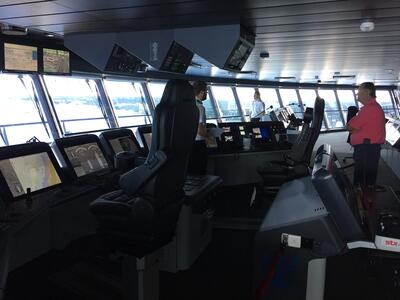
"In other countries (like [Britain]) the rules are stricter and you have to go back to school multiple times to upgrade your license to master," he explains.
"It's a lengthy process that is not for everybody, many stop sailing at a certain age when they want to settle down and have kids."
Are you able to [choose] between good and bad companies? Or do you need to accept any job, even if you know that the company is awful?
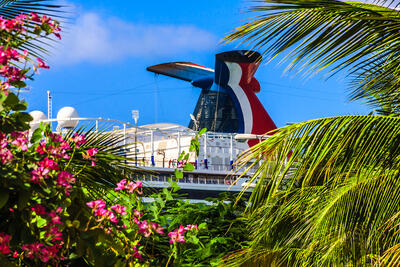
"You can apply with a company directly if you do the deck/engine thing but most people are hired through recruiters/agencies," yesman_85 replies to conspirologist.
"Some agencies are specific for a cruise line (like Carnival or Disney) but others you can be sent out to anywhere really. You don't need to accept a job, but there is a [chance] you can't be placed anywhere else for a while, which means no income."
conspirologist asked another question in a later comment, inquiring about whether there's a security officer onboard whose duty it is to investigate "serious situations concerning international security" onboard.
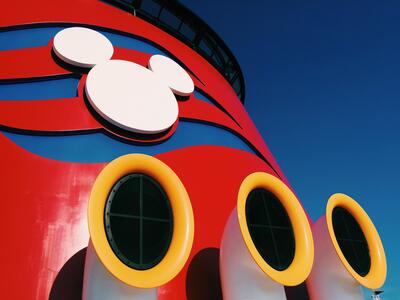
In yesman_85's experience, the security officer shares the same rank as the Chief Officer and reports to the captain. However, depending on the ship's size, he may have an assistant and other guards to help with guardway duty and patrolling.
"When something bad happens the captain has the authority and responsibility to start an investigation until the proper authorities are informed. [Within 12 nautical miles] of land you are in the waters of that country, outside that the laws of the country where the ship was flagged count."
Don't worry, though—there's a brig (or jail!) onboard to keep stowaways or hostile passengers from disrupting the peace.


